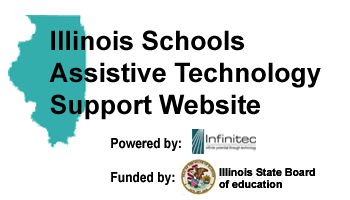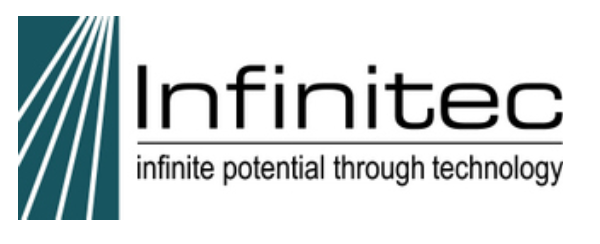
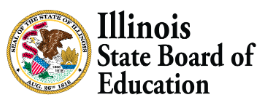
This FREE professional development opportunity is offered through an ISBE grant.
Topics:
- Technology to Support All Learners 4-11-24
- Technology to Support All Learners 4-19-24
- Executive Function Skills and the Impact on Behavior in the Classroom 4-29-24
- An Introduction to the SCERTS Model Virtual Training 5-17-24
- Augmentative and Alternative Communication Assessment Training
Technology to Support All Learners 4-11-24
April 11, 2024—9:00AM – 3:00PM
Facilitated by Pete Dulany and Anna Marske
Training Location: Elgin Community College, E 125 Seigle Auditorium, 1700 Spartan Drive Elgin, IL
REGISTER AT: https://bit.ly/3TkUxEx Click to download flyer
Throughout the day, participants will engage in three different sessions focused on the use of technology to support learning for ALL students. Content will apply to both general education students and those receiving special services. See session descriptions/learner outcomes for detailed content information.
Session 1 – Choose 1 of the following options
The UDL Framework and Why it Matters
Are you new to the UDL Framework? Do you need a refresher on how UDL benefits both teachers AND students? Are you ready to enhance your lessons through Engagement, Representation, and Action? Join Anna Marske for an engaging session full of brainstorming, examples, and resources. Teachers that participate in this session will be able to…
- Identify the three major principles of the UDL Framework
- See examples of technology tools that help to provide options for students in the classroom lessons
What Kind of Learner are You?
Most learners have specific “learning preferences” – the way they learn best during different tasks. This could be by watching videos, playing games, or taking notes. Do you know YOUR learning preferences? As teachers, it’s important to know our own learning preferences, since that’s the way we tend to teach… but that’s not always the best way our students learn. Join Pete Dulany for an exploration of different learning preferences and the best technology tools to use for each one. Teachers should bring a device to take a learning style test. Teachers that participate in this session will be able to…
- Take a test that determines their own learning preferences
- See examples of technology tools that help learning preferences in the classroom
- How learning preferences apply to the UDL Framework
Session 2 – Assistive Technology on iPads
Does your school use iPads for standardized testing? Are you familiar with the built-in accessibility tools that EVERY teacher should know about? In this session, we’ll explore our favorite free AND paid technology tools on iPads. Teachers that participate in this session will be able to…
- Enable basic iPad management features to keep students focused
- Identify assistive technology iPad settings that can be enabled to help students
- See examples of both free and paid apps that aid in student understanding of math skills, reaching comprehension, and more
Session 3 – Assistive Technology on Chromebooks
Chromebooks are powerful devices with built-in accessibility tools, and Chrome apps and extensions provide teachers with easy ways to help EVERY student learn better. In this session, we’ll take a look at where Chromebooks excel as a technology tool and the best ways to use them in the classroom. Teachers that participate in this session will be able to:
- Understand the difference between Chrome apps and extensions
- Identify both free and paid options to aid in reading comprehension, math skills, and more
ABOUT THE PRESENTERS

Since 2010, Pete Dulany has helped schools to use their technology better, from 1:1 implementations, to technical consulting, to professional development. Pete has written five books, including “e-Learning Made Easy” which helped teachers navigate the COVID-19 pandemic. As a Google Certified Trainer and Apple Teacher, Pete helps other teachers make the most of their classroom technology. He is continuing his 22 years of teaching experience as adjunct faculty for Concordia University Chicago.
Financial Disclosure: Pete Dulany is being paid an honorarium for this presentation.
Non-Financial Disclosure: Pete Dulany has no relevant nonfinancial relationships.
Anna Marske has led professional development sessions at Dulany Consulting for the past year. Previously, she taught 4th grade for seven years and worked as a new teacher mentor, math data team leader, and has trained teachers across Chicagoland on the UDL framework. Her passion is supporting teachers, so that they have tools to support their students. She lives in La Grange Park with her husband, Adam, and their 16-month old daughter, Lucy.
Financial Disclosure: Anna Marske is being paid an honorarium for this presentation.
Non-Financial Disclosure: Anna Marske has no relevant nonfinancial relationships.

WHO SHOULD ATTEND
Special Educators, General Educators, SLPs, OTs, Paraprofessionals, Social Workers, Psychologist and
Administrators

This FREE professional development opportunity is offered through an ISBE grant.
REGISTER AT: https://bit.ly/3TkUxEx
Questions? Email Samantha Conklin at sconklin@ucpnet.org
Technology to Support All Learners 4-19-24
April 19, 2024—9:00AM – 3:00PM
Facilitated by Pete Dulany
Training Location: Lincoln Land Community College – Taylorville Campus, Room 1120/1126 800 S. Spresser Street Taylorville, IL
REGISTER AT: https://bit.ly/3TkBgmG Click to download flyer
Throughout the day, participants will engage in three different sessions focused on the use of technology to support learning for ALL students. Content will apply to both general education students and those receiving special services. See session descriptions/learner outcomes for detailed content information.
The UDL Framework, Learning Preferences, and Why They Matter
Most learners have specific “learning preferences” – the way they learn best with different tasks. This could be by watching videos, playing games, or taking notes. Do you know YOUR learning preferences? As teachers, it’s important to know our own learning preferences, since that’s the way we tend to teach… but that’s not always the best way our students learn. By combining learning preferences with the three pillars of UDL (Engagement, Representation, and Action), we can create truly transformative lessons for every learner. Join in an exploration of different learning preferences, the best technology tools to use for each one, and how it all aligns with the UDL framework. Teachers that participate in this session will be able to…
- Identify the three major principles of the UDL Framework
- Take a test that determines their own learning preferences
- See examples of technology tools that help to provide options for students in classroom lessons for various learning preferences
Assistive Technology on iPads
Does your school use iPads for standardized testing? Are you familiar with the built-in accessibility tools
that EVERY teacher should know about? In this session, we’ll explore our favorite free AND paid technology tools on iPads. Teachers that participate in this session will be able to…
- Enable basic iPad management features to keep students focused
- Identify assistive technology iPad settings that can be enabled to help students
- See examples of both free and paid apps that aid in student understanding of math skills, reaching comprehension, and more
Assistive Technology on Chromebooks
Chromebooks are powerful devices with built-in accessibility tools, and Chrome apps and extensions
provide teachers with easy ways to help EVERY student learn better. In this session, we’ll take a look at
where Chromebooks excel as a technology tool and the best ways to use them in the classroom. Teachers that participate in this session will be able to:
- Understand the difference between Chrome apps and extensions
- Identify both free and paid options to aid in reading comprehension, math skills, and more
ABOUT THE PRESENTER

Pete Dulany is founder and President of Dulany Consulting Inc., a leader in professional development and technology consulting. With fifteen years of teaching experience in the northwest suburbs of Chicago, Pete is passionate about using technology to support all learning in the classroom. Pete is also a part-time instructor at Concordia University Chicago, where he shows future teachers best strategies for incorporating technology into the classroom.
Financial Disclosure: Pete Dulany is being paid an honorarium for this presentation.
Non-Financial Disclosure: Pete Dulany has no relevant nonfinancial relationships.
WHO SHOULD ATTEND
Special Educators, General Educators, SLPs, OTs, Paraprofessionals, Social Workers, Psychologist and
Administrators
This FREE professional development opportunity is offered through an ISBE grant.
REGISTER AT: https://bit.ly/3TkBgmG
Questions? Email Samantha Conklin at sconklin@ucpnet.org

Executive Function Skills and the Impact on Behavior in the Classroom
April 29, 2024
Facilitated by: Paige Buckingham, MS, CCC-SLP
Training Location: Knox College, Kresge Hall
2 East South Street Galesburg, IL
REGISTER AT: https://bit.ly/3TAxuH8 Click to download flyer
DESCRIPTION
Do you have students who lack the ability to control their emotions, organize their materials, regulate behavior, or follow classroom routines? Then this training is for you. Every day students encounter the need to use Executive Function Skills, however, these skills are not often taught. If we want students to be successful, we need to be purposeful in including Executive Function Skills teaching within the day. A lack of Executive Function Skills results in behaviors that negatively impact the classroom as a whole and disrupt that student’s educational process. During this training, you will learn about different Executive Function Skills, what they look like in the classroom, and how you can include purposeful activities and Assistive Technology supports in the day to teach and strengthen these skills. We will focus not on life skills, but on skills for life.
OUTCOMES
The learner will be able to:
- identify different executive function skills and how they are used in the classroom.
- discuss the impact of executive function skills in the classroom.
- prepare a plan for their classroom or learning environment that includes purposeful activities to teach executive function skills.
About the Presenter
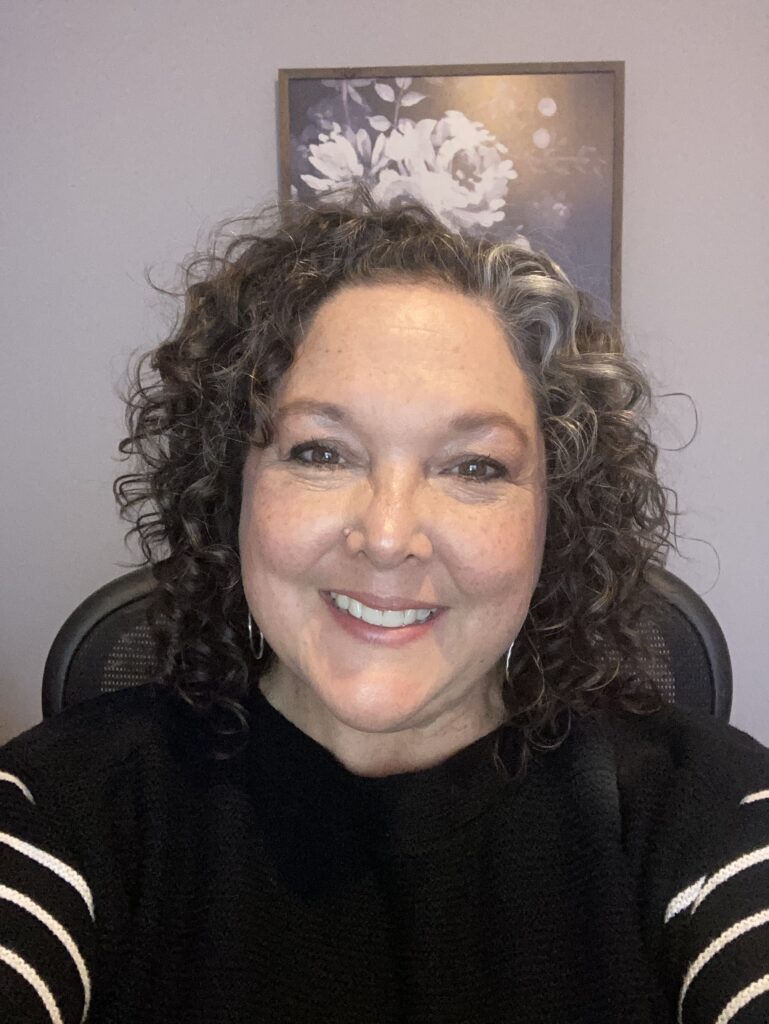
ABOUT THE PRESENTER
Paige Buckingham is a veteran educator having worked in public schools for 32 years. She is a Speech-Language Pathologist by training and has worked with all levels of students from pre-school through age 21. While the majority of her time was spent as a
Special Education Facilitator focusing on Assistive Technology and Related Services, she also worked as a general education teacher and Speech-Language Pathologist. Now retired from the schools, Paige owns Buckingham Educational Services & Training, LLC
(BEST) with the goal of supporting school staff in learning more about the tools students need to have skills for life.
Financial Disclosure: Paige Buckingham is being paid an honorarium and travel expenses for this presentation.
Non-Financial Disclosure: Paige Buckingham has no relevant nonfinancial relationships.
WHO SHOULD ATTEND
SLPs, OTs, Special Education Teachers, Paraprofessionals, Social Workers, Psychologist and Administrators
This FREE professional development opportunity is offered through an ISBE grant.
REGISTER AT: https://bit.ly/3TAxuH8
Questions? Email Samantha Conklin at sconklin@ucpnet.org

An Introduction to the SCERTS Model
Virtual Training
May 17, 2024—9:00AM – 3:00PM
Facilitated by: Amy Laurent, PhD, OTR/L
REGISTER AT: https://bit.ly/4cdXEXI Click to download flyer
DESCRIPTION
This virtual workshop will introduce the SCERTS® (Social Communication, Emotional Regulation, Transactional Support) model, a comprehensive, multidisciplinary educational approach designed for autistic learners and learners with social emotional learning differences. The day will begin with an introduction of the neuro- developmental foundation of SCERTS, a discussion of the empirical evidence, and the core domains. Next, the content will shift to writing outcomes and identifying the key role of the interactive partners in providing support for learners who are pre-symbolic communicators, at emerging language stages (using speech or multimodal forms of language), and at conversational levels. Our virtual format is interactive and participants will have the opportunity to share ideas, ask questions, and learn from one another throughout the day.
Learner Outcomes:
- Discuss the importance of social communication, emotional regulation, and transactional supports in the development of a relationship based, developmentally grounded, person centered, evidence grounded educational program.
- Identify how the SCERTS scope and sequence of goals can be used to guide the development of meaningful, functional and evidence-based objectives for autistic learners who are before the
emergence of words, emerging language, and conversational language. - Identify how the SCERTS scope and sequence of goals can be used to guide the selection for partner supports that are developmentally appropriate and validate the learner.
- Know how to identify partner stage in the model and use that information as a foundation for structuring developmentally appropriate learning opportunities and supports.
About the Presenter

Amy Laurent, PhD, OTR/L is the co-director of Autism Level UP! an
autistic/allistic partnership dedicated to the provision of education,
accessible resources, and practical strategies focused on increasing active engagement for autistic individuals and the members of their communities. She is a co-author of the SCERTS Model and frequently lectures internationally. She is passionate about neurodiversity and helping others to honor and understand the implications of “different ways of being” in relation to navigating the physical and social world. Dr. Laurent strives to practice what she preaches and uses her love of play and movement to meet her own regulatory needs.
Financial Disclosure: Amy is being paid an honorarium from Infinitec for this presentation. She receives a salary from Autism Level UP! Her presentation will focus on instructional strategies and supports from Autism Level UP! and elements of SCERTS, as well as provide information from similar and related approaches for teaching regulation.
Non-Financial Disclosure: She has no relevant non-financial disclosures.
WHO SHOULD ATTEND
SLPs, OTs, Special Education Teachers, Paraprofessionals, Social Workers, Psychologist and Administrators
This FREE professional development opportunity is offered through an ISBE grant.
REGISTER AT: https://bit.ly/4cdXEXI
Questions? Email Samantha Conklin at sconklin@ucpnet.org

Augmentative and Alternative Communication Assessment Training
Facilitated by Heather Miller Schwarz, MS, CCC-SLP, UCP Seguin & Kathleen Post, MS, CCC-SLP, Midwestern University
Beginning February 20, 2024 (additional dates listed below)
Location: DeKalb ROE, 2500 N. Annie Glidden Rd.,DeKalb, IL 60115
Register Online: https://bit.ly/3tUz9gL. Click to download flyer page 1 flyer page 2
Registration fee: No Cost
Thank you to the Illinois State Board of Education for their financial support.
Registration Questions? Email Heather Miller Schwarz hmiller@ucpnet.org
PLEASE REGISTER YOUR TEAM APPLICATION NO LATER THAN February 10, 2024

DESCRIPTION
This assessment series is designed for teams with prior knowledge and experience using augmentative and alternative communication (AAC) in the classroom. Teams are to be comprised of at least 1 SLP and educational team members (teacher, OT, PT, para-educator, administrator, SW). Each Team member MUST APPLY individually but should list each team member where noted. This will allow for each participant to receive their registration information and certificates. If you have any questions on team member eligibility please contact Heather Miller hmiller@ucpnet.org for further information. This presentation will discuss the AAC assessment process within the education environment. Participants will compare features of AAC tools including current mobile technology apps and dedicated speech generating devices and examine the benefits of matching the tool to the student rather than matching the student to the tool. The steps of an AAC assessment will be outlined & discussion will focus on evaluation models, tools, and recommendations. Teams will work collaboratively to complete a guided AAC assessment with one chosen student during the months of the training. Participants will walk away with the knowledge necessary to make decisions that best support a student’s communication needs within the classroom.
FULL DAY Face-to-Face AAC Seminars
- February 20, 2024 – AAC Overview (8:30 AM – 3:30 PM)
- February 28, 2023 – AAC Assessment (8:30 AM – 3:30 PM)
FOLLOW UP WEBINARS
- March 20, 2024 – Customizing for Trials (8:00-9:30 AM)
- April 10, 2024 – Data collection in Trials (8:00-9:30 AM)
- May 1, 2024 – Funding and report writing (8:00-9:30 AM)
OUTCOMES
The learner will be able to:
- identify the components of a feature match assessment and list three tools to support this process.
- compare and contrast the features of a variety of AAC tools including apps and speech generating devices for communication.
- identify three strategies to promote AAC usage during and after the AAC trial and teach others.
ABOUT THE PRESENTERS
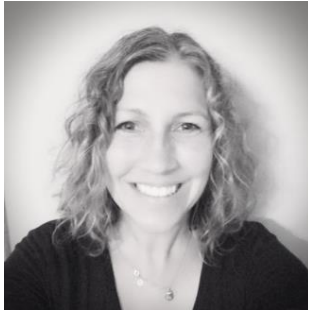
Heather Miller Schwarz, MS, CCC-SLP is a Speech-Language Pathologist with over 20 years of experience working with individuals with complex communication needs. She has had experiences in public school, private practice and non-profit settings and has participated as a member of IEP and assistive technology teams. Currently, she is an Assistive Technology Lead for Collaborations and Trainings at UCP Seguin- Infinitec where she collaborates with IEP teams to provide augmentative and alternative
communication support through student assessment and communication partner training and coaching. Heather has presented at local conferences in Illinois in addition to Closing the Gap, SWAAC and the Illinois Speech Hearing and Language Association Conferences. Her areas of interest continue to include pediatric speech-language disorders and assistive technology for individuals of all ages and abilities.
Kathleen A. Post, MS, CCC-SLP is the Clinic Coordinator and an Associate Professor at MWU’s Speech-Language Institute. She teaches courses in Augmentative and Alternative Communication
(AAC) and supervises SLP graduate student clinicians at the Speech-Language Institute in all facets of speech and language service. Previously, Kathleen was the Director of Assistive Technology, Speech/Language and Nutrition Departments at a large pediatric outpatient rehabilitation center in Illinois. For over 30 years, Kathleen Post has served individuals and their families who are
challenged with communication disorders. Kathleen has presented at national conferences (Closing the Gap, the American Speech Language and Hearing Association (ASHA) and the Assistive
Technology Industry Association (ATIA) conferences), as well as at local venues (Illinois Speech Hearing and Language Association Conference (ISHA) and multiple school district sites). She has
provided a series of webinar trainings in AAC Assessment for UCP-Infinitec. Kathleen has written two blog postings for USSAAC addressing transitioning between speech generating devices. She
has also recently been engaged in a research project with colleagues focusing on parent training in partner augmented input and AAC. Her areas of interest continue to include pediatric speech-
language disorders, early intervention services, augmentative and alternative communication, and assistive technology for persons of all ages and disabilities.
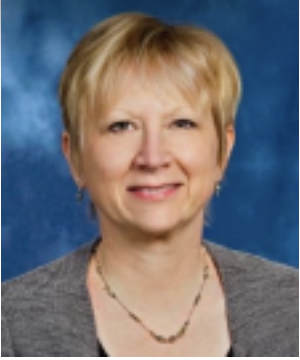
Financial Disclosure: Heather Miller Schwarz is employed by UCP Seguin Infinitec and receives compensation for providing this training. Non-Financial Disclosure: Heather Miller Schwarz is a member of ISHA, ASHA and SIG 12.
Financial Disclosure: Kathleen Post receives compensation for this training by UCP Seguin Infinitec. Non-Financial Disclosure: Kathleen Post is a member of ASHA and SIG 12
This program qualifies for ISBE PD clock hours and CE for SLPs, OTs, PTs, SWs, Nurses through IDFPR and ASHA CEUs. Must attend all training sessions in their entirety to earn ASHA Continuing Education
NOTE: ASHA CE Registry does not apply to those who independently track their credit hours. CEUs are only awarded to those persons who are valid members of the Registry who attend all hours of the training.
